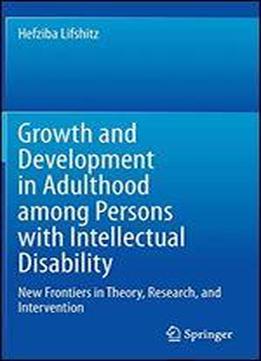
Growth And Development In Adulthood Among Persons With Intellectual Disability: New Frontiers In Theory, Research, And Intervention
by Hefziba Lifshitz /
2020 / English / PDF
5 MB Download
This volume advocates an optimistic new conceptual and practical approach to adulthood, aging, and education for individuals with intellectual disability (ID) across the lifespan. The compensation age theory (CAT) at the heart of this book suggests that the adulthood period in populations with ID may be characterized by processes of cognitive development, growth, and neural sprouting, rather than stagnation or even decline. Empirical findings indicate the contribution of chronological age, maturity, and accumulating life experiences to adults continued cognitive growth and intelligence, as a result of direct mediation, cognitive intervention, and academic learning as well as exposure to indirect learning. Grounded in cumulative evidence for the CAT, the book presents comprehensive analysis of a practical holistic educational intervention model for enhancing adults Cognition (literacy), Affect (including autonomy), and Behavior (adaptive behavior skills), including operative strategies, mediational parameters, and guidance for change agents in diverse settings. This triple CAB model offers detailed tools for promoting the cognitive improvement and invigoration of adults with ID in during ADL, vocational and leisure activities, at all severity levels ranging from mild and moderate to severe and profound, across different ID etiologies including Down syndrome, and even at advanced ages for adults with ID exhibiting comorbid Alzheimers.











